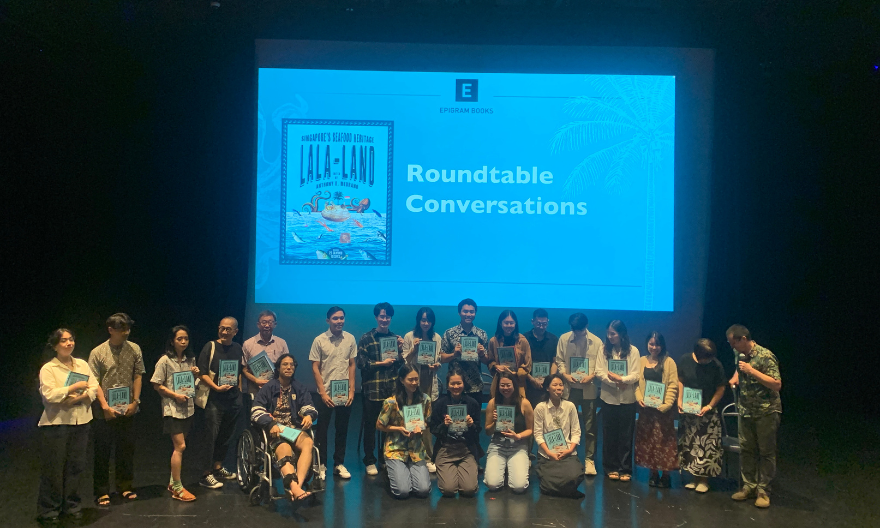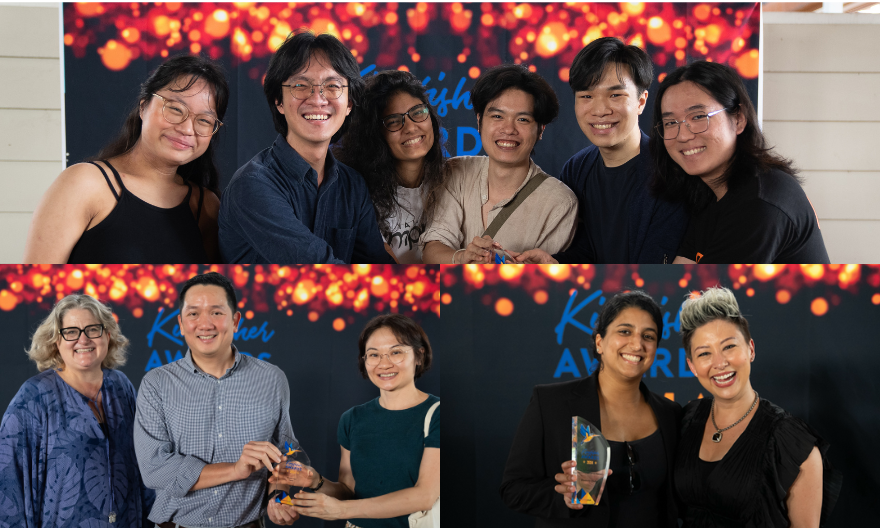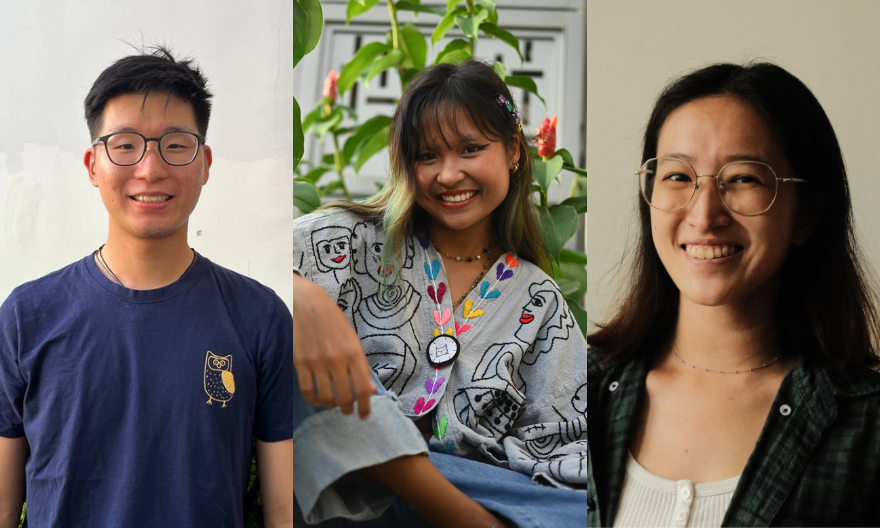Reflecting diversity through Lunar New Year celebrations at Yale-NUS
Yale-NUS students celebrate Lunar New Year in a myriad of ways, reflecting the diversity of how the festival is commemorated around the world
Lunar New Year is widely celebrated around the world, with each country or region having its own traditions, customs, and norms. Given the diverse backgrounds at Yale-NUS, it is no surprise that there are many variations in the way the festival is celebrated on campus.
 Ngoc’s hotpot dinner (left) and Táo Quân (right). Image provided by Dang Vo Bao Ngoc.
Ngoc’s hotpot dinner (left) and Táo Quân (right). Image provided by Dang Vo Bao Ngoc.
Lunar New Year in Vietnam is called Tết and is the most significant holiday of the year. While current border restrictions kept her from visiting her family for Tết, Dang Vo Bao Ngoc (Class of 2025), still made the most of her time at Yale-NUS.
“We wanted to emulate the cosy vibe we missed from home, so the other Vietnamese students and I gathered safely to have a hotpot dinner in the suite,” she shared. “Our grocery trip even included a visit to a local Vietnamese mini mart, just to make our Tết dinner even more authentic,” she said.
Although she could not get them in time in Singapore, other iconic Vietnamese dishes she usually eats at home include fried spring rolls and bánh chưng, a sticky rice cake wrapped in banana leaves with meat and mung bean fillings. “My favourite is bánh tét, a variant of bánh chưng that is round,” she added.
Playing in the background of their hotpot dinner was Táo Quân, an annual theatre production televised on the eve of Lunar New Year. “The show basically recaps the events of the year, ranging from the socio-economic developments of the country to trends in pop culture through the showcase of comedy and musical numbers,” Ngoc shared. “Tết just doesn’t feel complete without it!”
 Sundarimaa’s process of making dumplings and potato salad. Image provided by Sundarimaa Erdembileg.
Sundarimaa’s process of making dumplings and potato salad. Image provided by Sundarimaa Erdembileg.
In Mongolia, Lunar New Year is called Tsagaan Sar, which directly translates to ‘White Moon’. “We call the night before the new year Bituun, which describes the dark state of the moon before it becomes a crescent,” Sundarimaa Erdembileg (Class of 2024) shared.
On the day of Bituun, people clean their houses, conduct special rituals, and prepare a large feast for their families. “Families usually gather to make a lot of dumplings, and you’re told to eat until you’re as full as the moon,” Sundarimaa said. “Everyone has to contribute, even if it’s just folding one dumpling,” she added.
Celebrating Lunar New Year on campus for the second consecutive year, Sundarimaa and her Mongolian friend, Agimaa Otgonbaatar (Class of 2024), spent four hours in the Elm buttery making their own dumplings and potato salad. “My dumpling folding skills have definitely worsened, but it was still good enough to comfort us and overcome our homesickness,” Sundarimaa shared. “Potato salad is an iconic Mongolian dish, every family serves it and it’s my personal favourite,” she added.
“I love cooking on campus as it reminds me of home, especially during times like Lunar New Year when everyone is usually together,” she said.
 Ben (far left) celebrating Lunar New Year at one of his Singaporean friends’ house and taking part in lohei (Prosperity Toss). Image provided by Ben.
Ben (far left) celebrating Lunar New Year at one of his Singaporean friends’ house and taking part in lohei (Prosperity Toss). Image provided by Ben.
The arrival of exchange students to the College also came just in time for the festive season. Many of them hail from places where Lunar New Year is not as widely celebrated as it is at Yale-NUS and in Singapore.
Ben Platt (Class of 2023) an exchange student from Williams College in the United States, was excited to celebrate his first Lunar New Year in Asia. “Coming from New York, I did have exposure to Lunar New Year via my schools as well as the annual parades and lion dances in Chinatown. However, the festive mood is so much stronger here,” he said.
On campus, he participated in the various events at Elm Residential College, such as the Elm Lunar New Year Trivia Bowl, winning festive treats such as pineapple tarts. On top of that, he was also invited by two of his Singaporean friends to visit their homes off-campus. “I had steamboat and lohei (also known as Prosperity Toss) for the first time in my life. I found the symbolism of all the ingredients in lohei to be very interesting, such as how the word ‘fish’ in Chinese was a homophone for prosperity,” he shared.
“I really appreciated how welcoming my friends and their families were,” he added.





